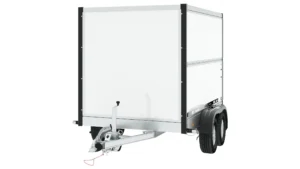The Unseen Powerhouse: Desert Rough Terrain Forklifts in Extreme Conditions
2025-07-14 04:20:28
Desert rough terrain forklifts are specialized machines engineered to operate in some of the most unforgiving environments on Earth. Unlike standard forklifts, these rugged vehicles are built with reinforced chassis, high-traction tires, and advanced cooling systems to withstand extreme heat, shifting sands, and uneven surfaces. According to industry reports, the global market for rough terrain forklifts is projected to grow at a CAGR of 6.2% by 2030, driven by increasing demand in mining, oil, and construction sectors operating in arid regions.
The design of a desert rough terrain forklift prioritizes durability and stability. Heavy-duty suspension systems and wide, deep-tread tires ensure optimal grip on loose sand and rocky terrain. Additionally, these forklifts often feature enclosed cabs with climate control to protect operators from scorching temperatures, which can exceed 50°C (122°F) in desert regions. Manufacturers like Caterpillar and JCB have introduced models with enhanced hydraulic systems capable of lifting loads up to 10,000 kg, even on steep inclines—a critical feature for desert logistics.
One of the key challenges in operating a desert rough terrain forklift is maintaining engine performance under extreme conditions. To combat this, engineers integrate high-efficiency air filters and dust-resistant components to prevent sand ingress, which can cause significant wear and tear. Industry data indicates that forklifts operating in desert environments require 30% more frequent maintenance compared to those in temperate climates, underscoring the need for robust engineering solutions.
The versatility of desert rough terrain forklifts makes them indispensable in remote projects. From transporting heavy machinery in oil fields to unloading construction materials in isolated desert sites, these forklifts ensure seamless operations where conventional vehicles would fail. A 2023 study by McKinsey highlighted that companies using specialized desert forklifts reduced downtime by 22% compared to those relying on standard models, proving their operational superiority.
Looking ahead, advancements in automation and electric powertrains are set to revolutionize desert rough terrain forklifts. Hybrid models with solar-assisted charging are being tested to reduce reliance on fossil fuels in off-grid locations. As industries continue to expand into arid regions, the demand for these rugged machines will only grow, solidifying their role as the backbone of extreme-environment logistics. With their unmatched resilience, desert rough terrain forklifts are truly the unsung heroes of industrial progress.








